Meet the inaugural UW Distinguished Research Fellows in RISE-AI, RISE THRIVE and RISE-EARTH
The Office of the Vice Chancellor for Research (OVCR) has awarded 11 postdoctoral trainees UW Distinguished Research Fellowships (UW DRF), designed to support interdisciplinary research areas related to RISE-AI, RISE-THRIVE, and RISE-EARTH.
The intent of the UW DRF Program is to support exceptional emerging scholars from around the world in collaborative research that takes place at UW–Madison and spans two distinct units (schools, colleges, centers), and that synergizes distinct disciplinary approaches. The fellowships will guide new research efforts to answer important and impactful challenges facing society.
Key to the program is incorporating exceptional mentorship plans.
“Mentorship at UW–Madison isn’t just about guidance—it’s about cultivating the next generation of trailblazers. Supporting postdoctoral trainees in interdisciplinary research gives them the tools to navigate complexity, challenge conventions, and spark innovation across fields,” says Dorota Brzezinska, vice chancellor for research. “These scholars, working in concert with their world-class mentors at UW–Madison will be a boost to the University’s RISE efforts, and I am looking forward to their accomplishments.”
Awards will be for two years and will cover an annual salary for the fellows, benefits, and a research and professional development allowance.
This program is supported by the Wisconsin Alumni Research Foundation.
NOTE: While future rounds of the UW DRF Program are expected, for now, the program is paused while the OVCR addresses pressing needs of current faculty, researchers, academic staff, post- and pre- doctoral trainees related to disruptions and slowdowns in federal research funding.
Meet the inaugural fellows the RISE areas:
RISE-AI
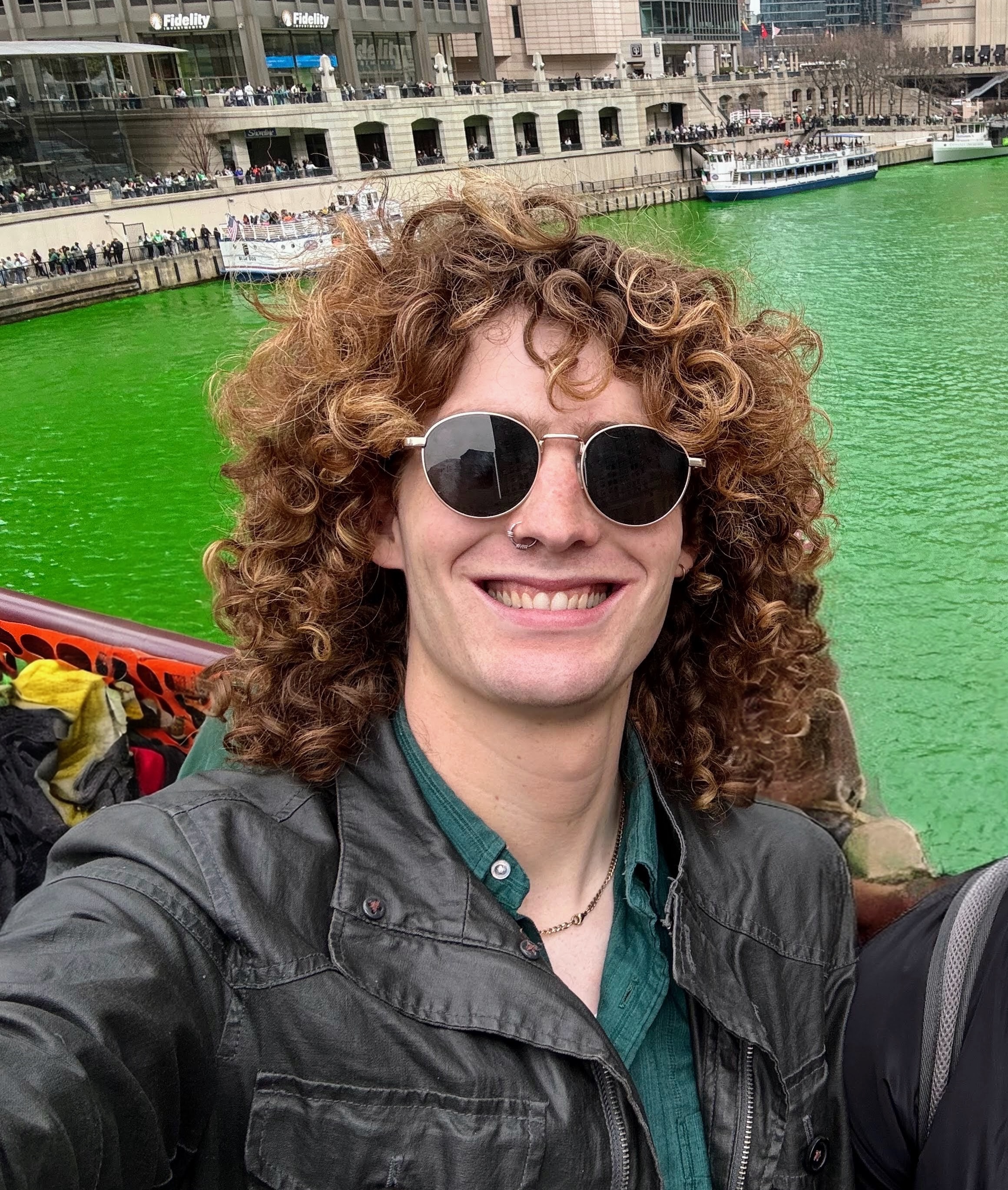 Grant Nickles, PhD from UW–Madison, Medical Microbiology and Immunology Department
Grant Nickles, PhD from UW–Madison, Medical Microbiology and Immunology Department
Mentors: Emile Gluck-Thaler, Plant Pathology; Joshua Coon, Chemistry
The overarching theme of my nine years of research experiences has been the genetic regulation underlying fungal metabolism. The highlight of my doctoral work was discovering a way to make a previously “invisible” class of microbial natural products visible to science. This work directly led to the identification of nearly 4,000 potential new drug candidates and, following my publication in Nucleic Acids Research, the leading natural product drug discovery platform used by industry and academia integrated my method into its software.
My research has been supported by the NSF Graduate Research Fellowship and UW–Madison’s Biotechnology Training Program Fellowship. My PhD work has produced six peer-reviewed publications, with three more in review, and my findings have been cited over 100 times. I have also had the honor of presenting my research as an invited speaker at two international conferences and received 2nd place in the 2025 BioForward Wisconsin 3-Minute Thesis competition.
We are in an antibiotic and chemical therapeutics crisis. The rate of antibiotic development has plummeted since the end of the 20th century, largely because existing methods keep re-discovering the same types of molecules. With no truly novel class of antibiotics discovered since the 1980s, we are running out of effective treatments.
Fungi and bacteria present the best opportunity to overcome this crisis, as they have evolved a diverse natural pharmacopeia whose potential remains untapped. My research plan is the first attempt to integrate genomic, proteomic, and metabolomic datasets into a unified framework for natural product discovery. If successful, this work will create the first AI-driven platform capable of computationally linking natural product genes to the chemicals they produce. This represents a transformative new approach to addressing the antibiotic innovation crisis through targeted drug discovery.
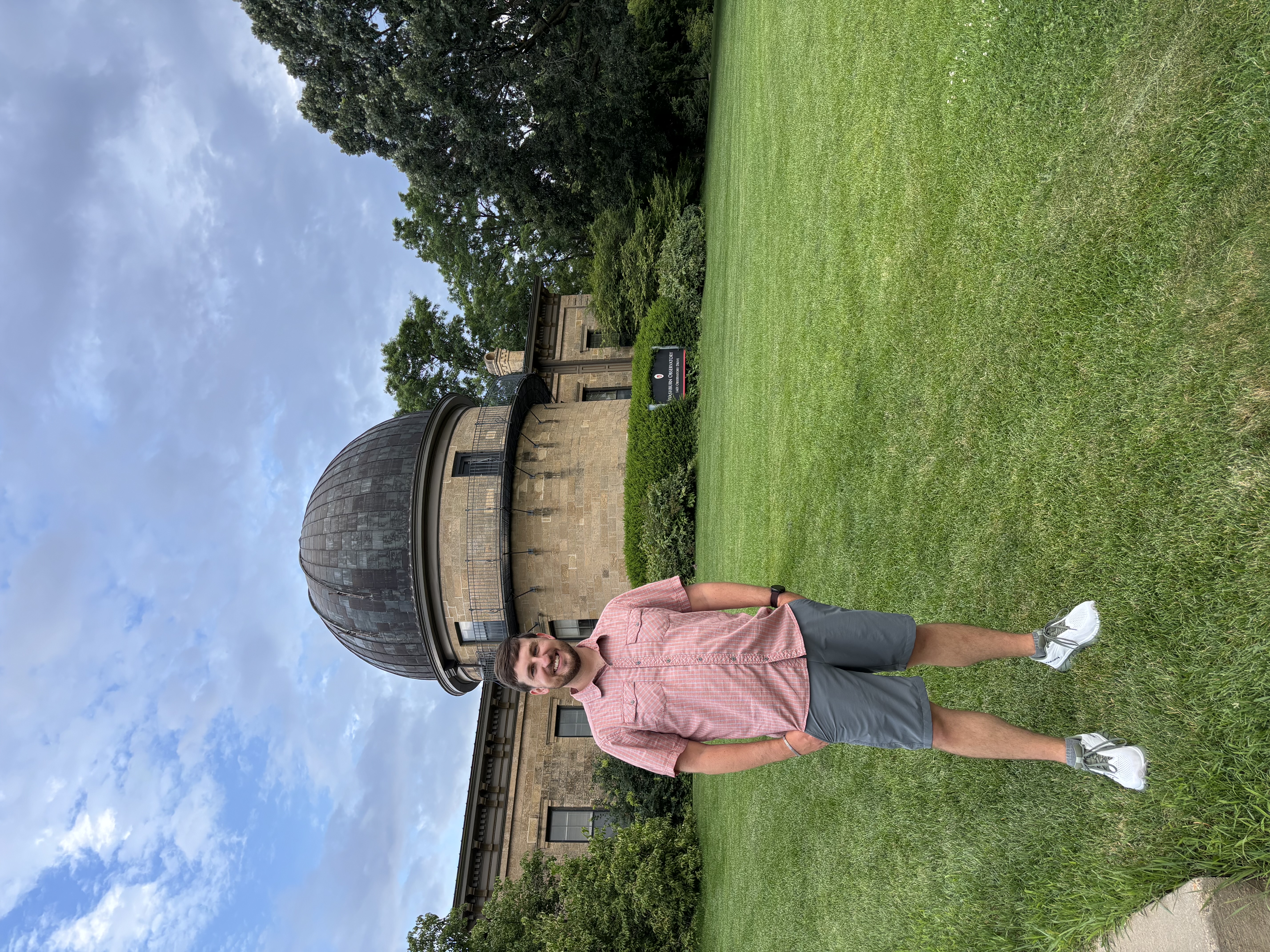 David Rice, PhD from University of Nevada, Las Vegas, Department of Physics and Astronomy
David Rice, PhD from University of Nevada, Las Vegas, Department of Physics and Astronomy
Mentors: Snezana Stanimirovic, Astronomy; Jess Cisewski-Kehe, Statistics
I research planet formation through a multidisciplinary lens, with work spanning orbital dynamics, planet interiors, and exoplanet demographics. My approach emphasizes the integration of computational tools with statistical methods. I am a co-developer of Magrathea, an open-source planet interior solver with flexible model parameters that is now used by research teams worldwide. My recent work identified a novel link between planetary system architecture and planet composition which could reshape how we interpret exoplanet survey data. Beyond publications, I am active in mentoring students, organizing interdisciplinary meetings, and giving public talks on exoplanets.
The thousands of exoplanets discovered to date challenge our understanding of how planetary systems form and evolve, an understanding that could previously only be based on the Solar System. My research explores the link between planetary system architecture—the spacing and ordering of planets—and the types of planets those systems produce. Recent work I led uncovered a correlation between a system’s orbital complexity and its planet sizes. At UW–Madison, I’ll build on this foundation by using AI to identify patterns that traditional techniques struggle to capture. I’ll apply machine learning to classify planetary systems by architecture, simulate synthetic populations to test how observational biases influence the trends we see, and develop neural networks that can predict which systems are likely missing planets. I aim to build robust, data-driven frameworks for interpreting exoplanet demographics that can be linked to physical processes that shape planetary systems—tools designed to scale with the massive datasets expected from upcoming missions like the Nancy Grace Roman Space Telescope.
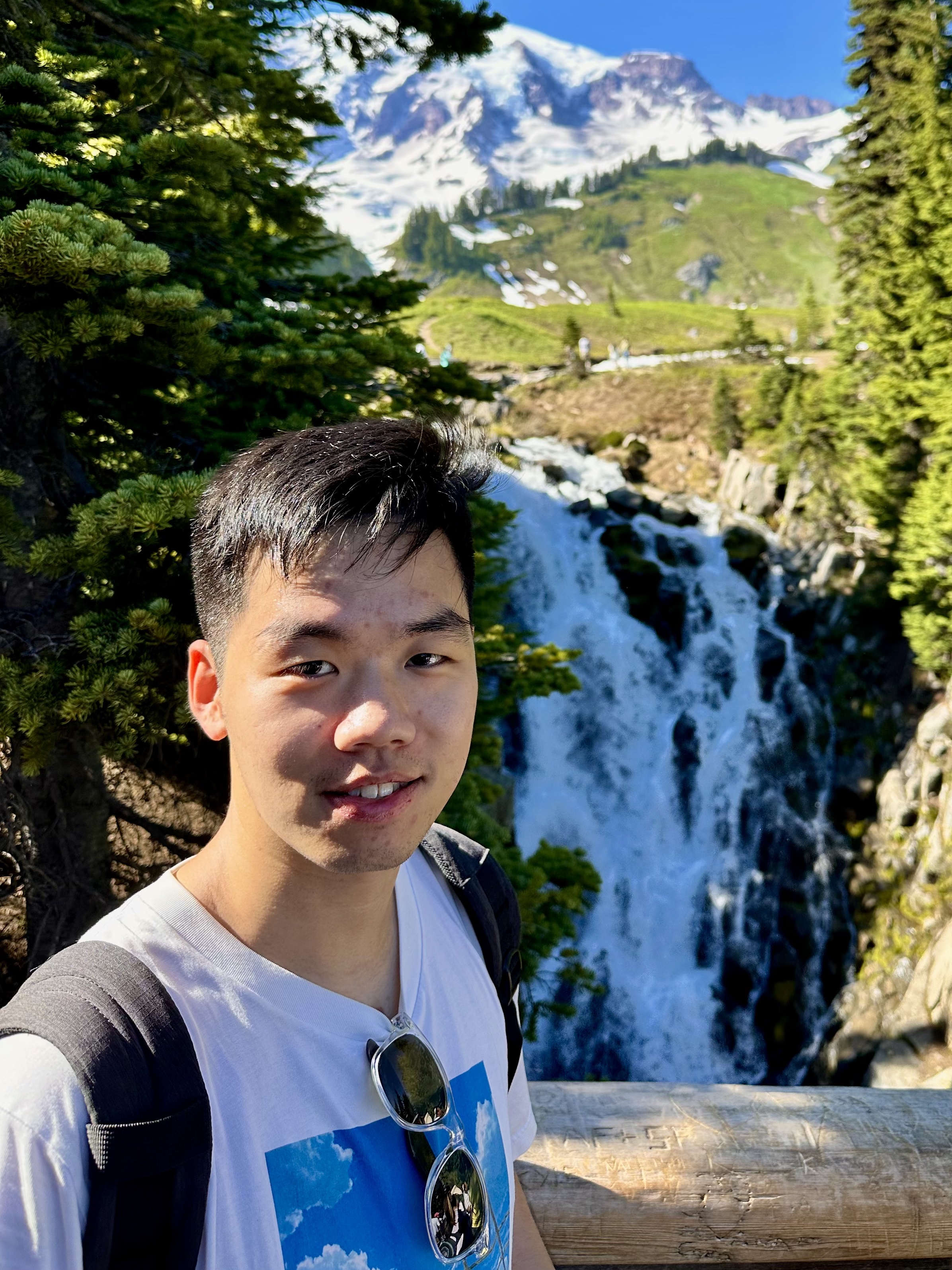 Wentao Zhan, PhD from Johns Hopkins University, Department of Biostatistics (also RISE-EARTH)
Wentao Zhan, PhD from Johns Hopkins University, Department of Biostatistics (also RISE-EARTH)
Mentors: Matthias Katzfuss, Statistics; Daniel Wright, Civil and Environmental Engineering
My research addresses key statistical challenges at the frontiers of science, with a focus on spatial data across diverse contexts. My recent work presents an innovative and efficient adaptation of neural networks for geospatial data, underpinned by rigorous theoretical analysis. I also got involved in interdisciplinary collaborations, with a focus on cancer genomics. My method contributed to publications in journals including Science and Science Immunology.
During my fellowship, I plan to develop statistical and computational methodologies to address pressing real-world challenges, especially those related to the environmental sciences. One specific project on my plan is to use “emulators” that leverage cheap and easily available low-fidelity climate output to obtain probabilistic predictions of environmental variables on high-fidelity fields, such as wind, rainfall, and flooding. The methods will be broadly applicable to weather forecasting, and climate-change assessment, aligning with the theme of RISE-EARTH. Simultaneously, my work contributes to the vision of RISE-AI through the integration of machine learning and AI to enhance model flexibility and trustworthiness. For instance, I aim to explore scalable probabilistic machine learning approaches that support uncertainty quantification and improve decision-making
RISE-THRIVE
 Reji Babygirija, PhD from the UW–Madison, Cellular and Molecular Biology
Reji Babygirija, PhD from the UW–Madison, Cellular and Molecular Biology
Mentors: David Harris, Surgery; Samuel Gellman, Chemistry
I recently completed my PhD under the mentorship of Dr. Dudley Lamming, where I studied the impact of dietary interventions in slowing or preventing Alzheimer’s disease (AD) progression using pre-clinical mouse models. My doctoral research was supported by the T32 Molecular and Nutritional Training Program (MANTP) and NIH F31 Predoctoral Fellowship. Now as a postdoc in the WiSLiM Lab with Dr. Harris and in collaboration with Dr. Gellman, I’m extending this work to investigate how novel incretin mimetics and surgical weight loss interventions influence brain health and AD via gut brain axis. I am grateful to receive the UW Distinguished Research Fellowship, which is a major milestone toward my goal of becoming an independent investigator.
My project aligns with the RISE-THRIVE theme which aims to extend health span and delay the onset of many age-related diseases. Over the next two years, I’ll investigate how incretin mimics and metabolic surgical interventions affect AD progression using both human neuronal organoids and rodent AD models. Ultimately my goal is to identify novel therapeutic targets to promote healthier aging and prevent cognitive decline.
 Christina Henry, The Ohio State University, School of Communication
Christina Henry, The Ohio State University, School of Communication
Mentors: Dhavan Shah, Journalism and Mass Communication; Rachelle Winkle-Wagner, Educational Leadership and Policy Analysis
Some of my education and career highlights include publications in high-impact journals such as International Journal of Communication, Journal of Communication, Human Communication Research, Political Communication, and Current Opinion in Psychology as well as a Top Paper Award in Political Communication from the National Communication Association. I also received a fellowship from the Graduate School last year at OSU.
My research related to RISE-THRIVE over the fellowship focuses on understanding how individuals’ efforts to address those sociopolitical determinants of health within their communities impacts their health over time. The project specifically focuses on how citizens in disadvantaged communities might cope with political changes that impact their well-being and how both institutional and non-institutional political engagement to address those social, economic, or environmental determinants of health impact one’s well-being over time.
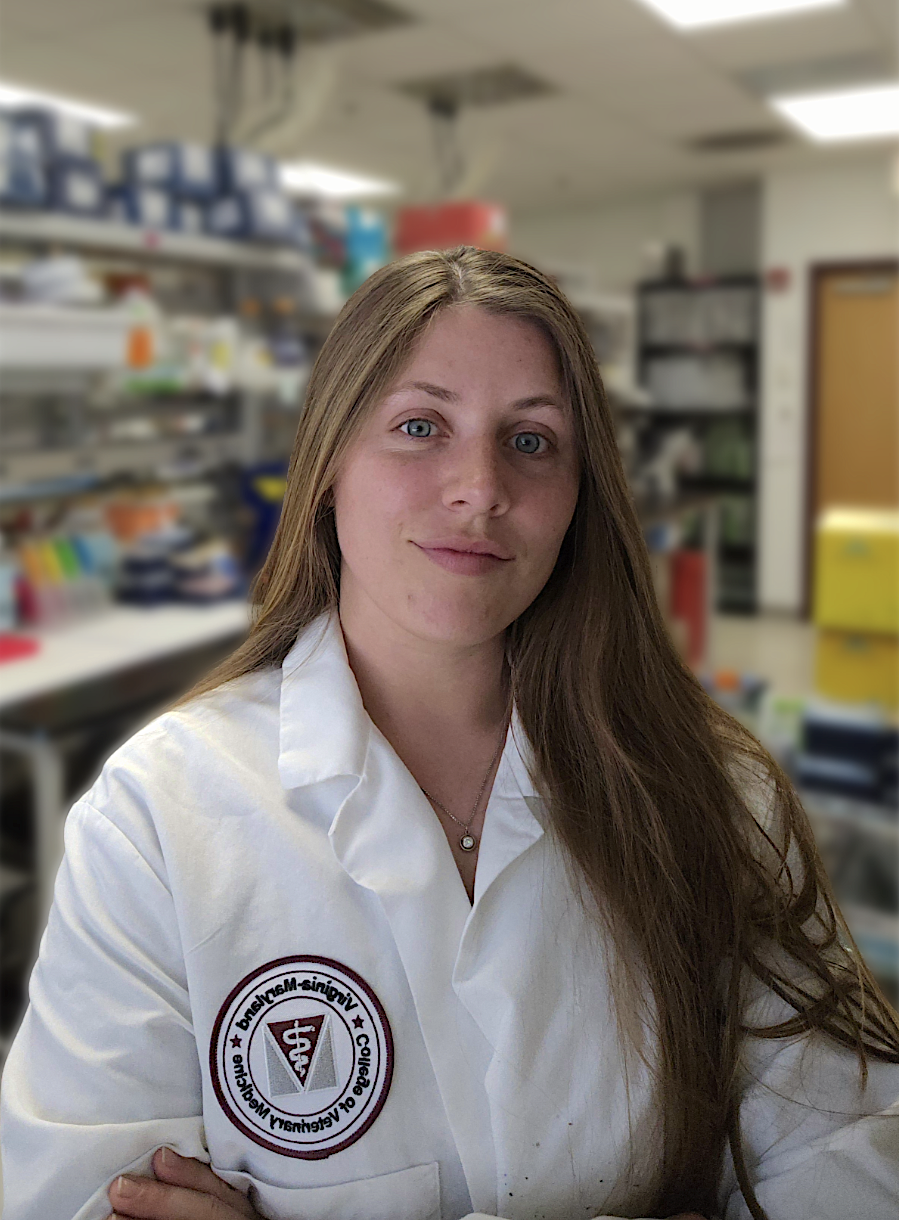 Morgen VanderGiessen, PhD from Virginia Polytechnic Institute and State University (VirginiaTech), Biomedical and Veterinary Sciences through the Infectious Disease Interdisciplinary Graduate Education Program
Morgen VanderGiessen, PhD from Virginia Polytechnic Institute and State University (VirginiaTech), Biomedical and Veterinary Sciences through the Infectious Disease Interdisciplinary Graduate Education Program
Mentors: Darcie Moore, Neuroscience; Thomas Friedrich, Pathobiological Sciences
I completed my bachelor’s degree in biochemistry with minors in chemistry and medicine in society, followed by a master’s degree in biochemistry, and ultimately my PhD in biomedical and veterinary sciences. Throughout this journey, I’ve accumulated over eight years of experience in vector ecology, animal model development, and the identification of antiviral and neuroprotective therapeutics. My most recent research has focused on developing mouse models to study neurological complications following viral infections, particularly alphaviruses like Venezuelan and Eastern equine encephalitis viruses. I’ve also worked on identifying therapeutic targets that could mitigate long-term neurological damage caused by these infections.
I’m most proud of authoring and co-authoring several peer-reviewed publications (8 in print/accepted/under revision; 5 in preparation), receiving competitive research awards such as the Center of Excellence for Emerging and Zoonotic Animal Diseases (CEEZAD) BSL-3 Training/Transboundary Animal Disease Summer Program, the USDA National Bio and Agro-Defense Facility (NBAF) Scientist Training Program Fellowship, and the Virginia Tech Provost’s Research Assistantship in Infectious Disease which supported my doctoral research and training. In addition, I presented my work at numerous national conferences and received multiple travel and poster awards, which recognize both the impact and quality of my research.
Outside of research, I’ve enjoyed teaching and mentoring, serving as an instructor of record for senior-level biochemistry students and mentoring several undergraduate and graduate students, several of whom have been recognized for their efforts in shared publications and gone on to professional or graduate programs. Collectively, these experiences have shaped me into a well-rounded scientist committed to both scientific discovery, collaboration, mentoring, and interdisciplinary education which I plan to continue in my postdoctoral fellowship at the UW–Madison.
I am incredibly grateful to the UW Distinguished Fellows Research Program for supporting my proposed research, which investigates how viral infections, particularly zoonotic and mosquito-transmitted viruses, contribute to neurodegeneration and cognitive decline. Together with my mentors, Dr. Moore and Dr. Friedrich, we are developing a replication-deficient Zika virus vector to selectively target neural stem cells and explore novel stem cell-targeted antivirals. These tools have the potential to advance both basic research and future therapeutic strategies. By integrating virology, neuroscience, and regenerative medicine, our work aims to uncover new approaches to support brain health and promote healthy aging.
RISE-EARTH
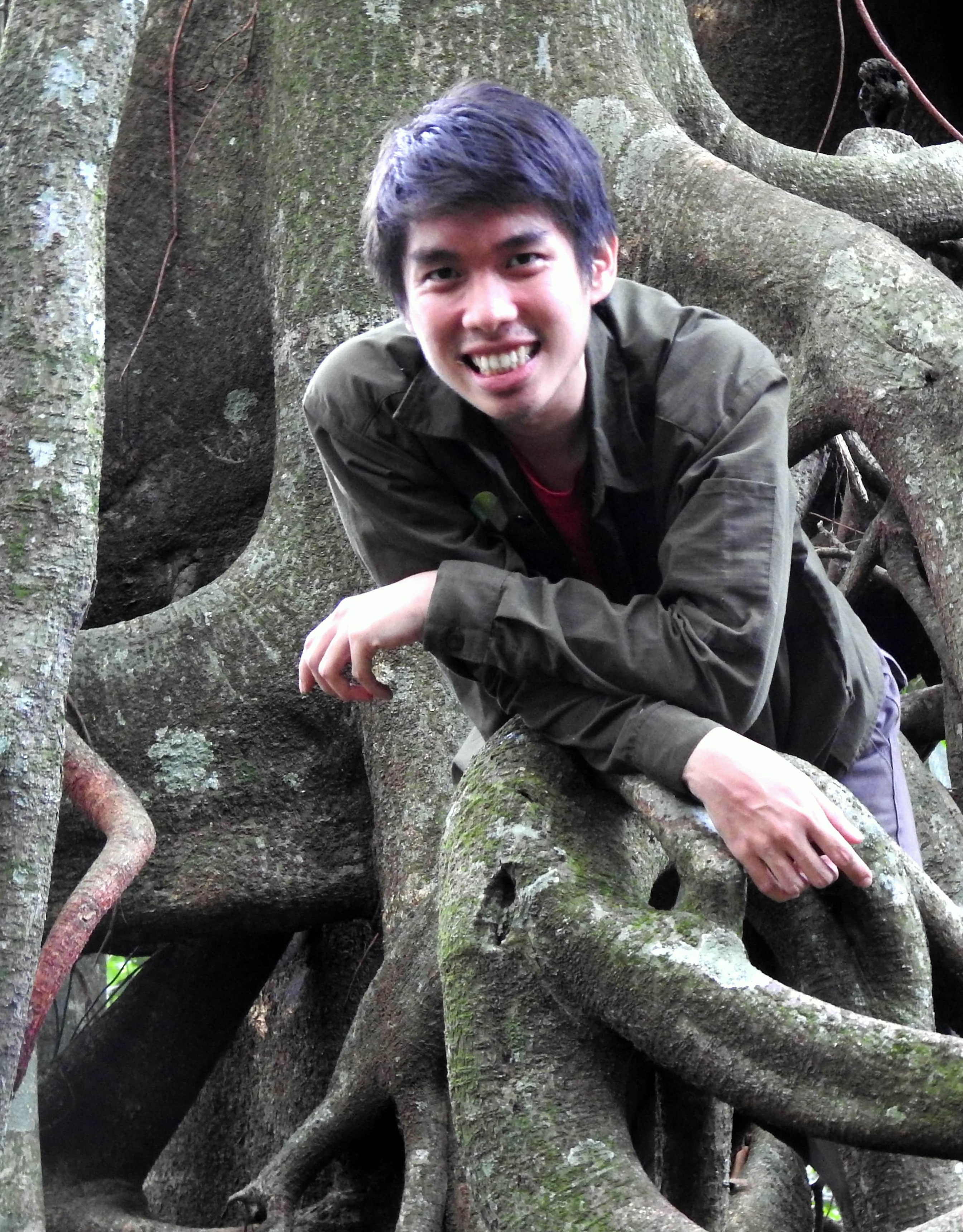 Ardiantiono Ardiantiono, PhD from the Durrell Institute of Conservation and Ecology, University of Kent (UK)
Ardiantiono Ardiantiono, PhD from the Durrell Institute of Conservation and Ecology, University of Kent (UK)
Mentors: Zuzana Burivalova, Forest and Wildlife Ecology; Song Gao, Geography
My research focused on optimizing the monitoring and conservation of threatened tropical forest mammals in Indonesia.
Our biggest achievements lie in applying science to improve real-world conservation practices. Our research helped demonstrate the recovery of Sumatran tigers through intensive protection efforts and emphasized the value of community engagement in managing human-Komodo dragon and elephant conflict. Moreover, my PhD work showed that integrating multiple data sources can greatly reduce monitoring costs for threatened rainforest mammals, therefore helping the managers to better allocate their resources for a more effective conservation.
My fellowship aims to develop an AI-based data integration framework that combines camera trap imagery, acoustic recordings, and environmental DNA to generate robust insights into biodiversity status. This integrated approach will support the monitoring and evaluation of Nature Climate Solutions (NCS). The project aligns closely with the RISE-EARTH initiative by fostering interdisciplinary collaboration across ecology, conservation science and AI. Ultimately, it seeks to strengthen the role of forest-based NCS projects in preserving not only carbon storage but also biodiversity, thereby enhancing ecological resilience and supporting climate adaptation efforts in tropical ecosystems.
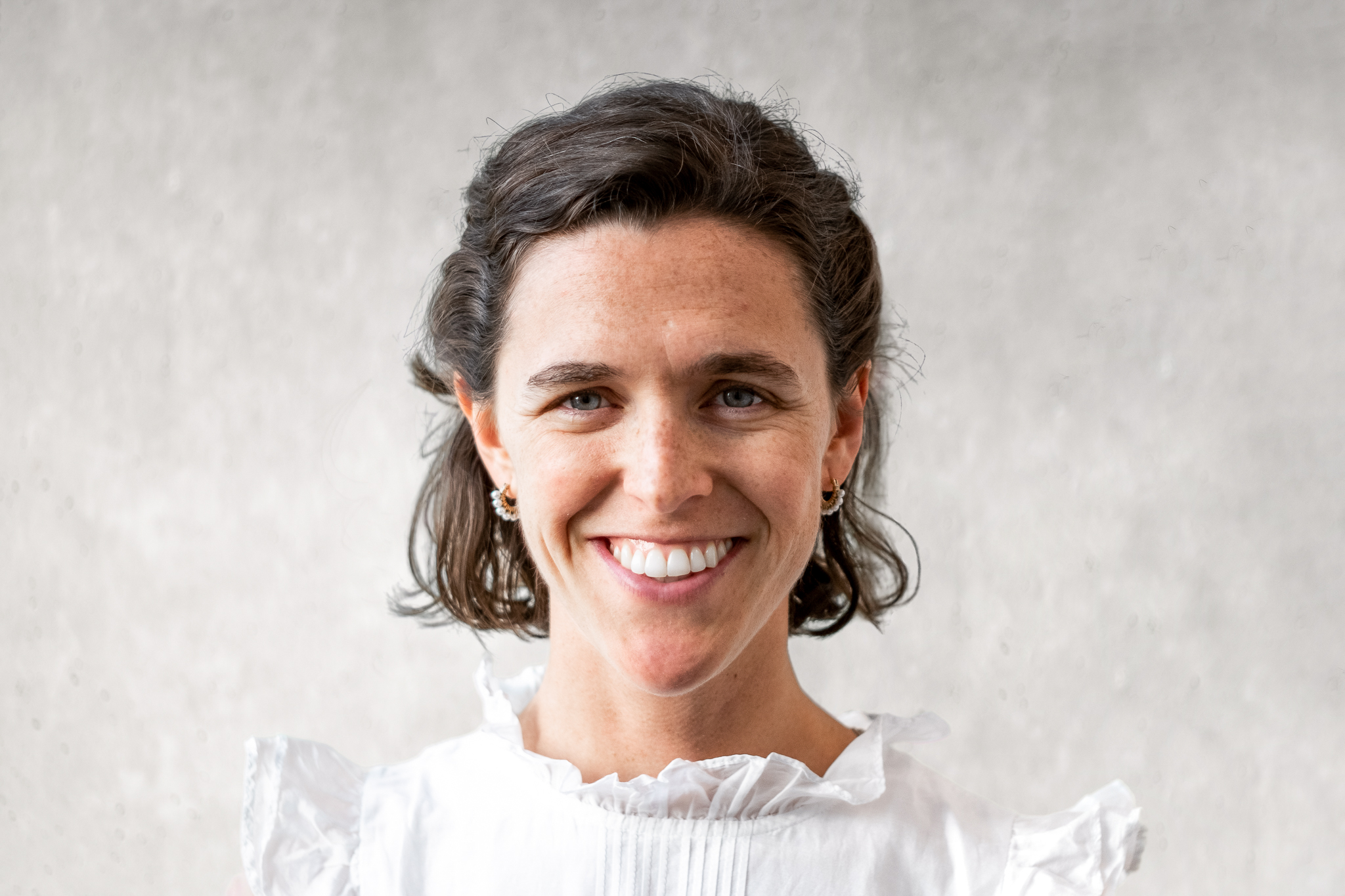 Candeleria Bergero, PhD from the University of California, Irvine, Department of Earth System Science
Candeleria Bergero, PhD from the University of California, Irvine, Department of Earth System Science
Mentors: Morgan Edwards, Public Affairs; Corbett Grainger, Agricultural and Applied Economics
I have a dual bachelor’s degree in political science and international relations from the Universidad Católica Argentina, where I graduated summa cum laude. I then came to the United States to pursue my master’s in environmental sciences at Emory University (you can find part of my thesis here)—which sparked my passion for interdisciplinary research. After completing my master’s degree, I worked as a research associate at the Joint Global Change Research Institute (JGCRI), where I applied human-Earth systems modeling to explore policy-relevant questions around decarbonization. During my time at Emory and JGCRI, I became increasingly drawn to evidence-based, human-centered, policy-relevant research, which led me to pursue a PhD focused on carbon dioxide removals (CDR) in net-zero emission scenarios (you can find the three chapters of my thesis here).
In the next two years, and thanks to the RISE fellowship, I will be looking into jobs in the net-zero transition in the United States. While the United States decarbonizes its economy and shifts to cleaner energy sources, some jobs will be gained, but others will be lost. Using a mix of modeling approaches and economic analysis, I want to understand the spatial and temporal dimensions of these shifts. This research will help identify vulnerable communities and provide actionable insights to policymakers seeking to design more just and equitable transitions.
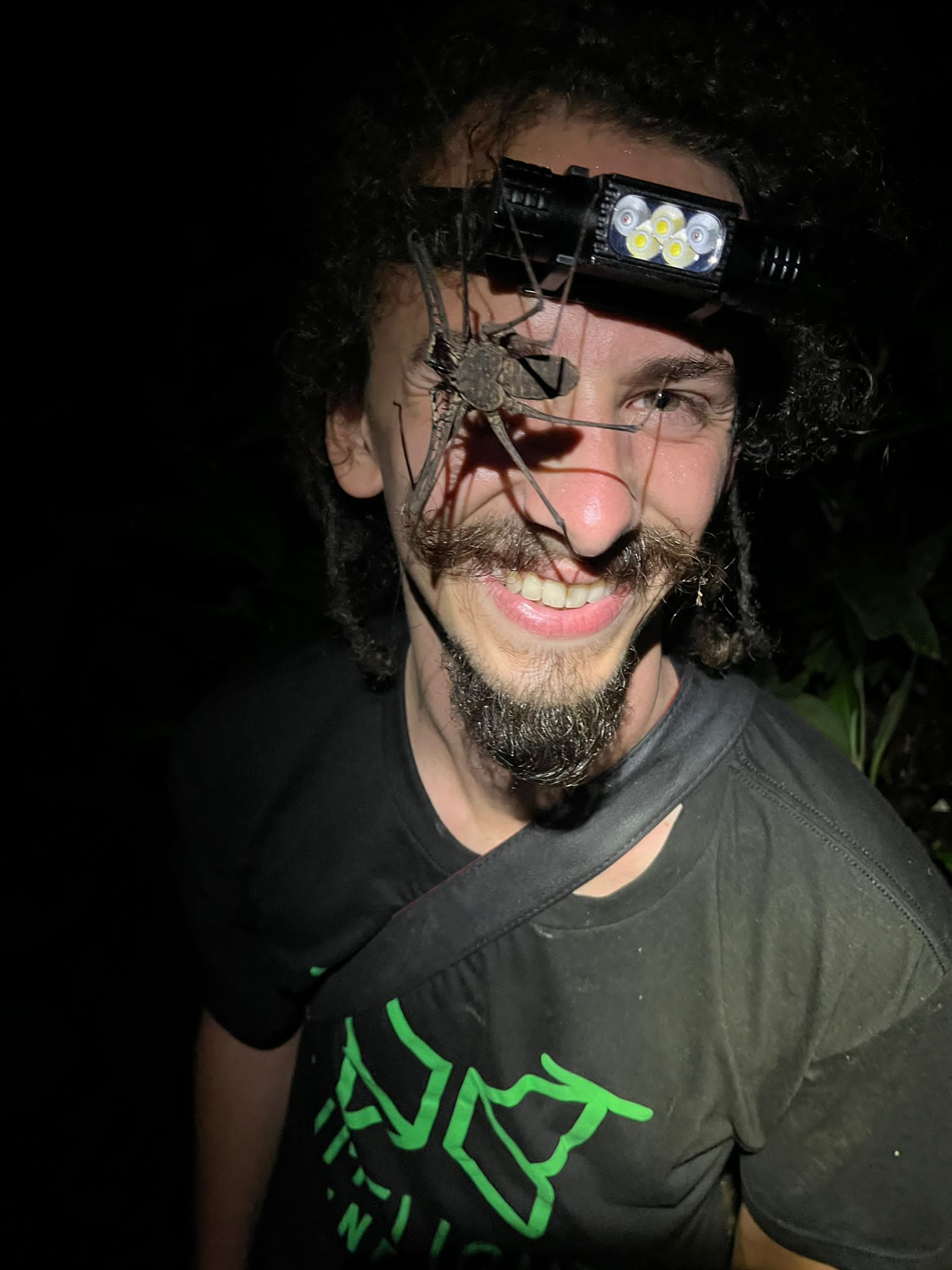 Ari Grele, PhD from the University of Nevada, Reno (UNR), in Ecology, Evolution & Conservation Biology
Ari Grele, PhD from the University of Nevada, Reno (UNR), in Ecology, Evolution & Conservation Biology
Mentors: James Crall, Entomology; Joshua San Miguel, Electrical and Computer Engineering
I received my bachelor’s degree in entomology from Cornell University in 2019 and completed my PhD studying the impact of nectar toxins on pollinator behavior at UNR in 2025. From 2022 – 2024 I was the computer vision lead for team Limelight Rainforest, which took first place in the $10M XPRIZE: Rainforest competition. In addition to my research at UW–Madison, I am continuing to work with the Population Biology Foundation to develop technology for the large-scale monitoring of tropical insect biodiversity.
While at UW–Madison I will be using automated camera traps and wearable chemical sensors to study how multiple dimensions of plant and insect biodiversity, especially floral chemodiversity and plant – pollinator interaction diversity, act to buffer ecosystems against stressors like drought. This research will have strong overlap with the goals of both RISE-AI and RISE-EARTH by developing energy-efficient biodiversity monitoring tools and deploying them to understand how biodiversity shapes pollinator networks and the fundamentally important ecosystem services they support.
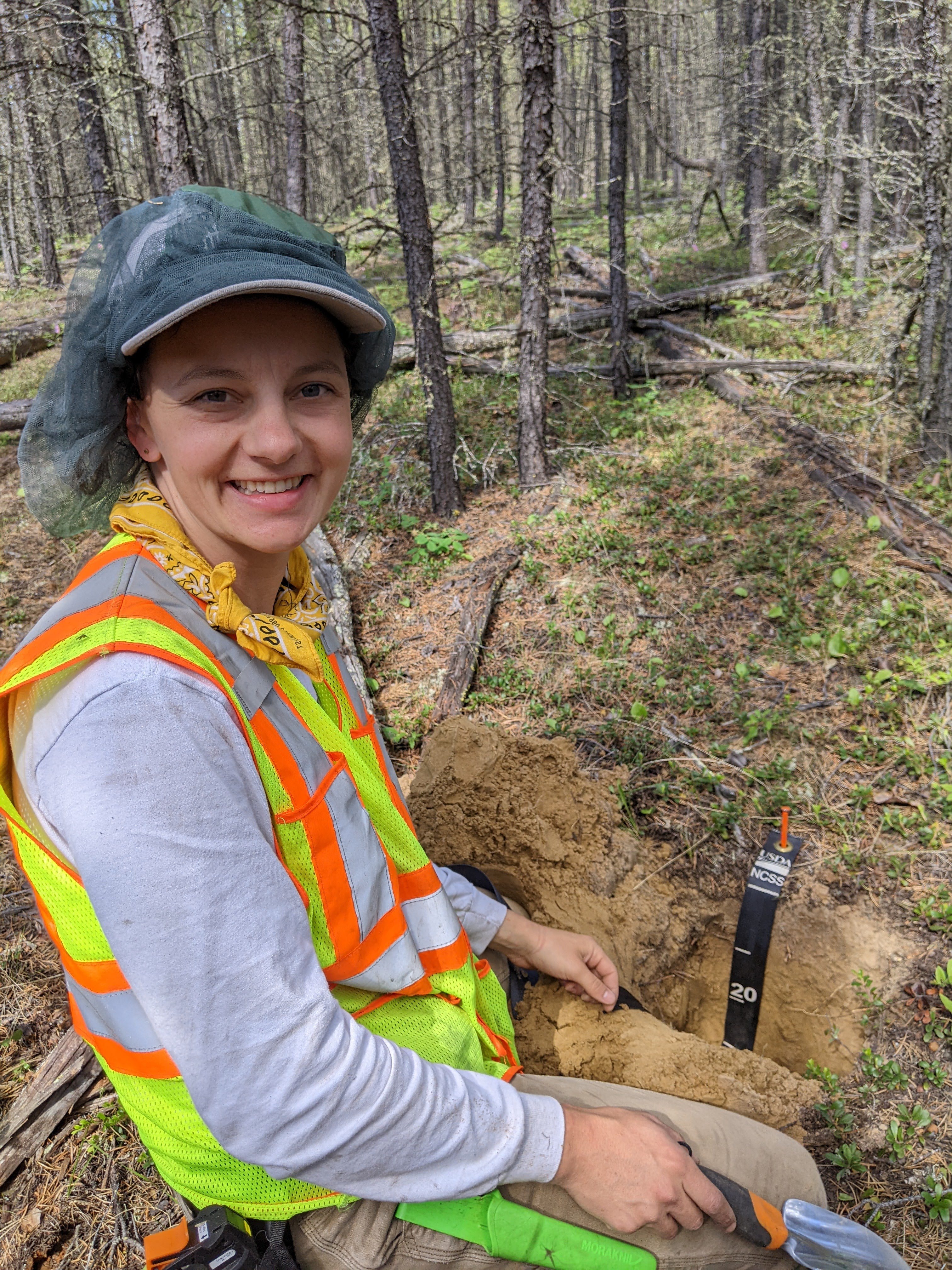 Dana Johnson, will receive her PhD from UW–Madison, Department of Soil and Environmental Sciences
Dana Johnson, will receive her PhD from UW–Madison, Department of Soil and Environmental Sciences
Mentors: Christopher Kucharik, Plant and Agroecosystem Sciences; Andrea Hicks, Civil and Environmental Engineering
I have spent the last six years researching the impact of wildfire and shifting wildfire regimes on soil microbial communities and biogeochemical cycling in boreal forests. This work has involved travel to northern Alberta, Canada to collect soil samples from Wood Buffalo National Park, collaborations with the Forest Products Laboratory, and recently, several months of research at the Oak Ridge National Laboratory in Tennessee working on integrating fire effects on soil microbial community function into the Carbon, Organisms, Rhizosphere and Protection in the Soil Environment (CORPSE) model.
For the RISE fellowship, I am excited to turn my attention to the effects of agrivoltaics, i.e. the integration of solar energy and food production, on soil biogeochemical cycling. Specifically, I am interested in (1) the viability of using solar installations as a mechanism of soil restoration via the promotion of beneficial microbial communities that promote soil C and N accrual and (2) understanding how the integration of food production into solar energy sites effects landowner opinions of solar energy production. This work directly addresses the themes of RISE-EARTH by re-envisioning the ways in which we use land for solar energy production to maximize economic and environmental benefits for farmers and surrounding communities. By increasing our understanding of the impacts of solar installations on belowground soil processes, we will contribute to discovering the potential of agrivoltaics to integrate energy production, food production, and environmental stewardship on a single piece of land.
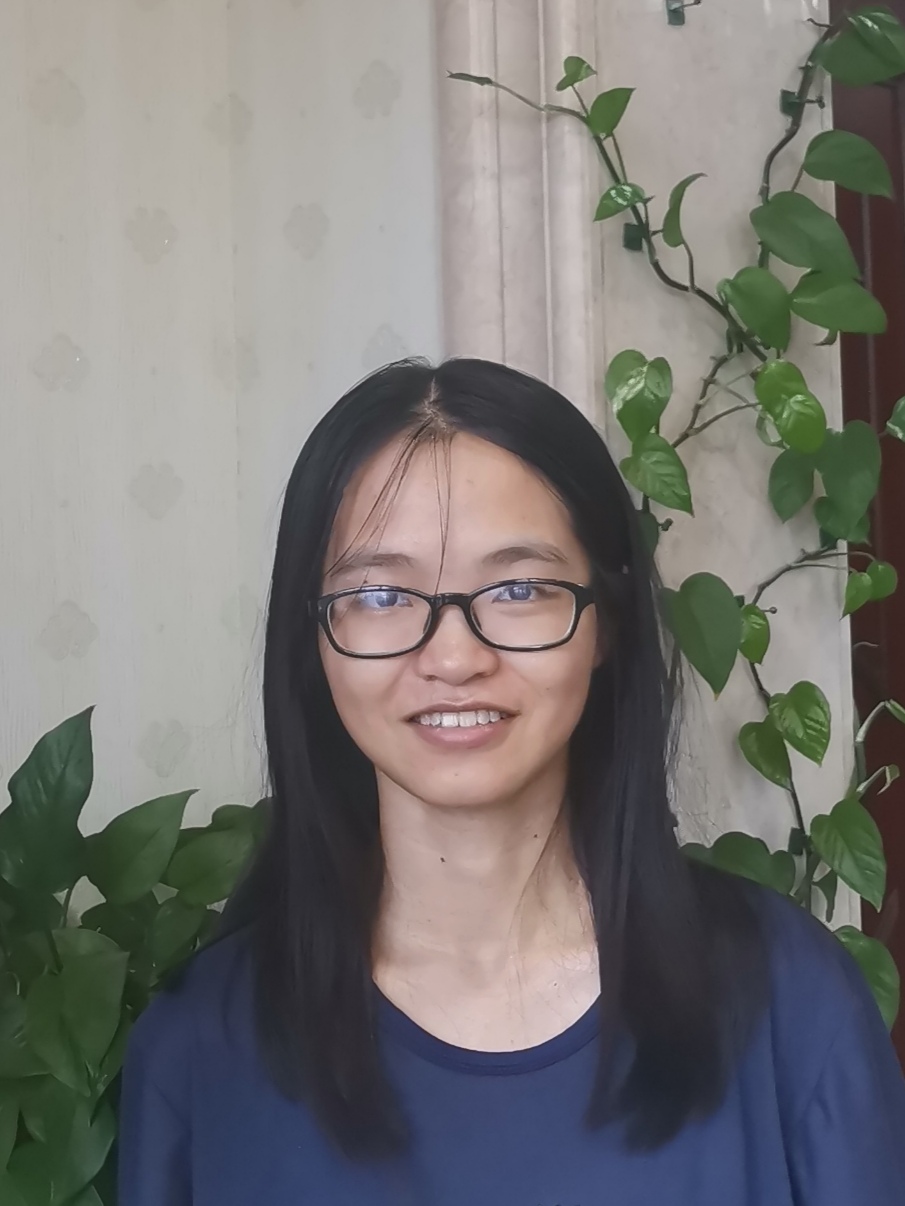 Xingyu Shen, PhD from the University of Chicago, Chemistry Department
Xingyu Shen, PhD from the University of Chicago, Chemistry Department
Mentors: Martin Zanni, Chemistry; Michael Arnold, Materials Science and Engineering
My PhD work focuses on the mid-infrared electroluminescence of colloidal quantum dots. I demonstrated mid-infrared LEDs using the intraband transition of HgSe and CdSe quantum dots, studied the emission mechanism, and improved the efficiency with optical cavities.
With the fellowship, I will work on understanding and directing the architectural design of solar cells based on nanotubes with ultrafast photocurrent spectroscopy. This project will strengthen the capacity to address critical challenges and opportunities in sustainable energy, particularly those related to photovoltaic solar cells, in alignment with the aims of RISE-EARTH.
By Natasha Kassulke, natasha.kassulke@wisc.edu
